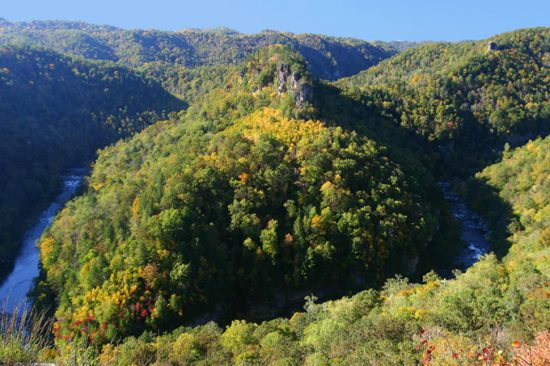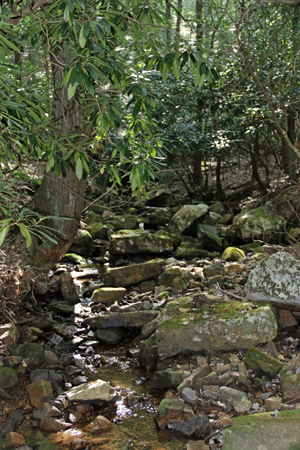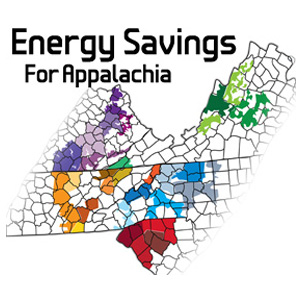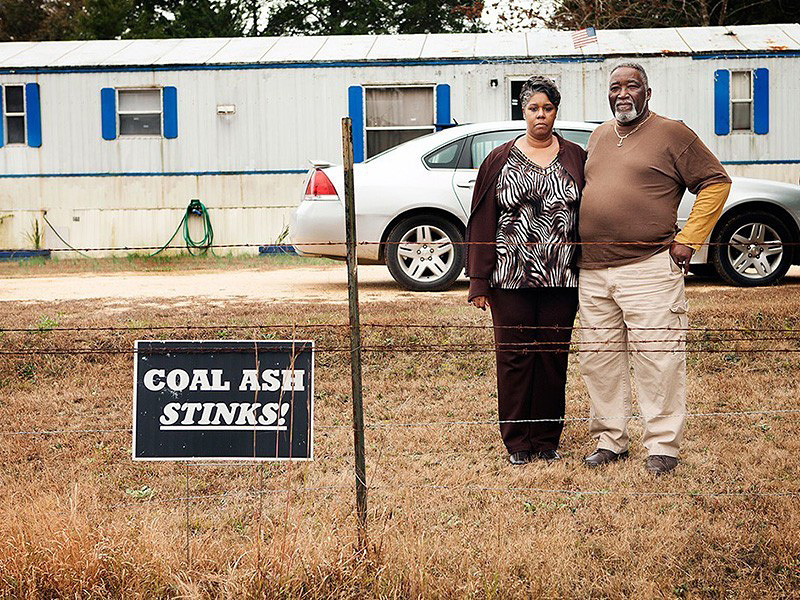All Posts
What do electric co-ops have to do with economic justice?
The nonprofit WeOwnIt initiative was established in 2015 to create a national network for cooperative members of all sectors to have the rights, education and tools to implement organizing practices. This year, WeOwnIt is concentrating efforts towards electric co-ops.
Read MoreA growing mine is a growing problem for the Russell Fork River
The history of the Doe Branch mine in Southwest Virginia is long and complicated, and its future remains unclear. A bankruptcy saga with the mine’s previous owner stalled development in the past year, but things appear to be getting back on track — putting the Russell Fork River at risk.
Read MoreCommunity and conservation groups condemn FERC’s review of proposed Mountain Valley Pipeline
Contact: Joe Lovett, Appalachian Mountain Advocates, 304-520-2324, jlovett@appalmad.org Laurie Ardison, Protect Our Water, Heritage, Rights, 304-646-8339, ikeandash@yahoo.com Kirk Bowers, Sierra Club Virginia Chapter, 434-296-8673, kirk.bowers@sierraclub.org Kelly Trout, Chesapeake Climate Action Network, 240-396-2022, kelly@chesapeakeclimate.org Lara Mack, Appalachian Voices, 434-293-6373, lara@appvoices.org WASHINGTON, D.C. – Federal regulators today released a draft environmental review for the proposed fracked-gas Mountain…
Read MoreAtlantic Coast Pipeline could face further delays
In a letter sent to the Federal Energy Regulatory Commission on Sept. 1, the U.S. Forest Service voiced concerns that the proposed route for the Atlantic Coast Pipeline could threaten several streams in the George Washington National Forest.
Read MoreCitizen action leads to closure of KD#2 mountaintop removal mine
After two years of pressure from citizens, West Virginia permanently halted mining at the KD#2 mountaintop removal coal mine. But the mine has already damaged land and water. This guest post features a statement from the Kanawha Forest Coalition.
Read MoreDo-It-Yourself tips for energy efficiency: Heating & Cooling
Education is a key part of our work, and one way we are helping residents lower their energy costs is by creating and sharing some short videos with Do-It-Yourself energy efficiency tip. This video features John Kidda, founder and President of reNew Homes, Inc., in Boone, N.C., discusses programmable thermostats as a way to save on heating and cooling.
Read MoreEnergy bill acrobatics
For the Schmidt family of Tazewell, Tennessee, managing their budget is a balancing act, and one they have become very good at. But high electric bills–up to $300 in the winter–makes that balance tricky to maintain, sometimes leaving very little for emergency funds, much less for the home repairs they need that could actually lower their energy use.
Read MoreHands Across the Appalachian Trail
Atlantic Coast Pipeline backers head to North Carolina
While North Carolina is rightfully focused on the coal ash scandal, another environmental tug-of-war is strengthening in some of the state’s poorest areas. The Atlantic Coast Pipeline would cut 170 miles through eastern N.C. where a quarter to a third of people live in poverty. And this is precisely why these types of projects are placed in low-income communities: to reduce the chance of resistance.
Read MoreCleaning Up A Mess: Coal Ash Across Appalachia
Appalachian states are burdened by millions of tons of toxic coal ash. Without firm federal standards, it’s up to states to determine much of the cleanup process — and regional states are taking varying approaches.
Read More







